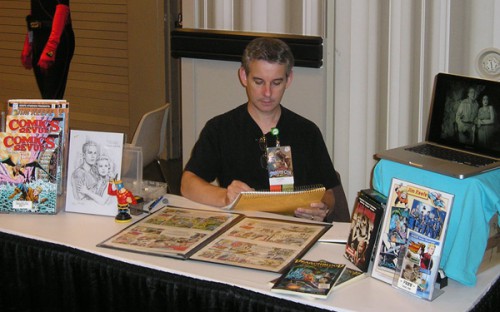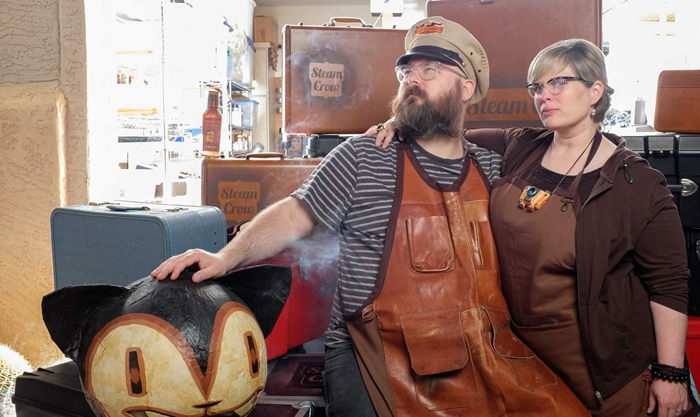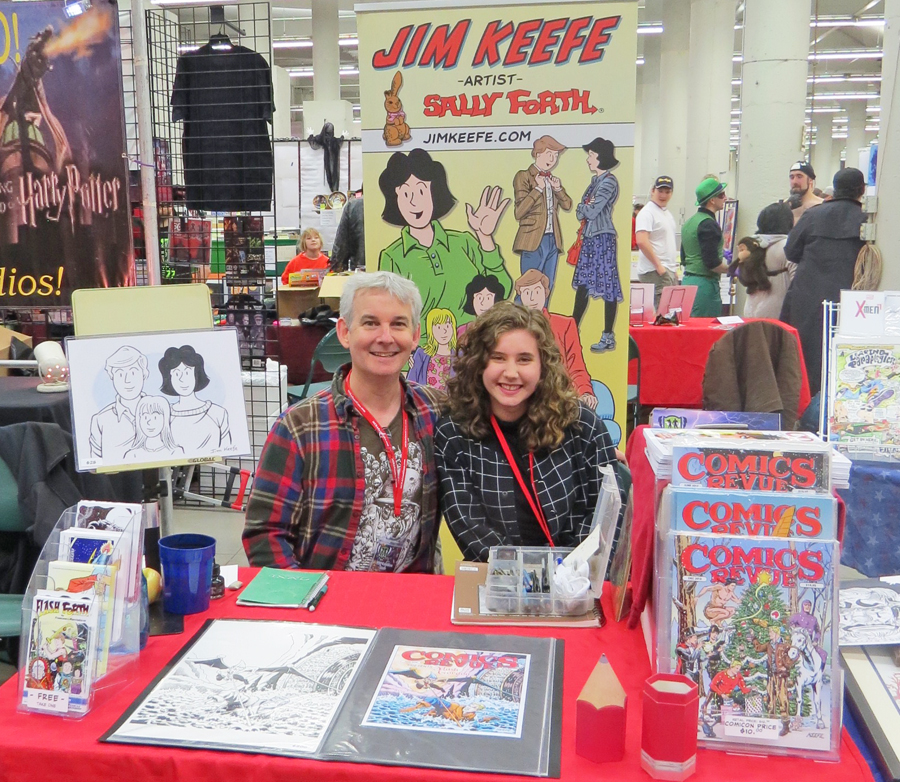It’s been my experience that networking is the key in getting work in the art field. I know it seems basic but it bears repeating that if an employer is not familiar with you and your work then they won’t hire you. And this is not a matter of “it’s not what you know but who you know.”
The following is from The Essential Principles Of Graphic Design by Debbie Millman.
“The most delusional graphic design belief system is this: becoming a successful graphic designer is all about being an extraordinarily talented designer. It is not. Talent is only one part of the equation for a successful career in graphic design. In fact, in the field of professional graphic design, talent is simply what is considered “operational excellence” in business school. Talent is essentially a given, a point of entry. A career in graphic design brings with it the assumption that you have talent, and in isolation, talent will not guarantee success for any designer or design program.”
For more from Debbie Millman, check out her podcast at Design Matters Media.
One great way to network is comic conventions – but it can get costly. I was a guest at Dragon Con awhile back and had a complimentary table that otherwise would have cost $500 (at that time). I sold more stuff than at any other convention I’ve been at – but still couldn’t break-even after I added up the cost of airfare, hotel and meals.
What balanced it out for me and made it worthwhile was the networking. Along with the standard touching base with fans and other professionals in the business, I was interviewed for two podcasts – Sidebar and Comics Coast-to-Coast– which was great publicity.
The following is some hands-on experience from artists/cartoonists from the trenches.
Tyler Page back in 2010 did a great post where he broke down the cost of self-publishing and promotion for his book Stylish Vittles. In part 2 of the post he cited convention costs over a seven year span.
“…the grand total of all my business expenses from 2002 through the printing of Nothing Better Vol 2 in late 2009 is $46,918.60. Yes, that is a lot of money. It is. But it’s important to realize that was spent over the course of 7 years – it’s not like I dropped it all at once. I also tried to be as thrifty as possible in my spending when I could, especially when traveling.”
“In the end it wasn’t the cost of printing books that really rang up the bills – it was the traveling and conventions.”
Excerpt from Publishing Pt. 2 – How Much is This Going to Cost Me?
Daniel Davis of Steam Crow LLC had an informative blog post where he related his experience exhibiting at the 2011 San Diego Comic-Con in regards to what works and what doesn’t. In summation he noted;
“It’s getting more difficult to profit at comic conventions, but I’ve seen it done, and know that it’s possible. It’s no longer a space where one can simply show up, and expect to profit. But, with ample year-long preparation, and strategy, it is doable.”
Steve Bissette (Swamp Thing, Tyrant, Taboo) has years of experience as an artist and publisher.

The following is an excerpt from a Facebook post of his where he did a comic con post-mortem.
“Professionally, it ratified all the reasons I stopped investing in conventions…
In short, while I met some great people, signed a ton of SWAMP THINGs, and had fun with my cronies, I didn’t get to see/shop/experience the con outside of my table space; my being there didn’t sell even ONE World of Strange Bissette t-shirt (and we were just an aisle apart, right NEXT to each other!); I didn’t make a dime on sales (lost $$ after shipping costs); and my add’t commitment to a three-lecture/workshop day following was a wash, at best (again, personally, great to do; didn’t earn me a dime).
Had I paid for travel/table, I’d have busted my entire fall budget at home to do the one convention. Whatever I made at the table, I spent eating during my stay (and spent more). If I’m going to travel, it’s going to be TRAVEL, with Marge, to see friends/family, not to do cons.
Just being pragmatic. I mean, look. I’m thankful I went, and thankful Rick, Tom, John, and I have so many folks who came out to see us! Folks & our fans are great—kind, generous in their comments, and all want their SWAMP THINGs signed, but most of ’em sample nothing else, by and large. Money’s tight everywhere, particularly these days, and SWAMP THING is still all folks want from us, and those they’ve got. Whatever else I have, I’m better off selling via online sales. In fact, only ONE person bought one of everything new from the table.”
I’m often asked from readers/fans which upcoming comic conventions I’ll be at. In general, not too many, as I’ve cut down on going to cons. If I do attend a con it’s likely because it’s close to home (because of cost), and if I do a show out of town it’s usually because I have family living in the area that I can visit and save money on hotels by crashing at their homes.
Another big deterrent is the time involved, which if it coincides with a tight deadline can be MURDER. I’ve tabled at way too many cons where I’ve had to bring work, which just ends up being a disservice to fans looking to say hello and should be avoided at all cost. Add to that the time it takes to recover from that kind of scheduling and it’s lose-lose situation all the way around.
Is tabling at a convention worth the time and effort? If you go in ill-prepared you’ll probably just end up pissing money down the drain, with no benefit other than the same enjoyment any random attendee walking through the door could have had.
If you attack a convention in a business sense where you’re budgeting cost and working your butt off (commission sketches/networking/research trends) then yes they are. If you want to work in this business, I’d advise treating it as such.
I’ll end with some stellar advice from Colleen Doran (A Distant Soil, Amazing Fantastic Incredible Stan Lee, Troll Bridge). This is related to networking and making the effort to get your work out there…
“Lots of people assume that the reason they can’t get hired is because publishing is some kind of closed circle. It’s really not. Clients are always looking for new talent. REALLY. They are DYING to hire the next JK Rowling, the next Jim Lee, the next James Patterson. Who doesn’t want another money-maker?
The truth is, almost everything that comes over the transom is not very good. When I write this, aspiring creators cringe thinking “Oh, she means me.” No, I don’t. If you have any idea of the level of just how bad submissions are, you would be appalled. It is rare to see anything of quality. I don’t know anyone in publishing who enjoys going over submissions, because it’s depressing. If you are good and if you’ve got something to show, DON’T GIVE UP. Trust me, clients are DYING to find you.
SECOND THING: a major reason clients don’t like to hire new people is they have a tendency to screw the pooch at an alarmingly high rate. The joy of creating for fun evaporates when you HAVE to create. Creating all the time: not so simple. And, especially in comics, the workload is awesome. Almost everyone in graphic arts will try to steer you away from comics and toward advertising because comics pay is usually terrible and advertising is less work. I can’t tell you how many people I’ve tried to hire up from fandom who have completely vapor-locked, including people I’ve tried to hire from other areas of publishing…
Everything in comics is labor intensive and often techy and boring these days, since artists have to do their own production work. You have to really know what you are doing. So, next time you think that publisher isn’t going to give you a chance, think of it from the publisher’s point of view. If your portfolio is good, and you show a real, steely willingness to produce there’s a publisher looking for you.
Really. Don’t give up.”
For more on Colleen Doran, go to ColleenDoran.com
or check out her Patreon at patreon.com/ColleenDoran





